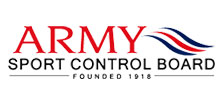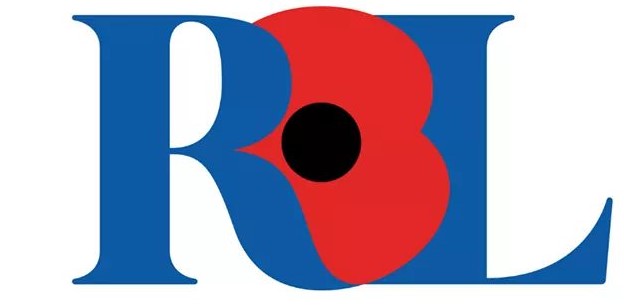The Boxing Officer / OiC
- The Boxing Officer is a very important appointment at Army Unit level and must be a Commissioned Officer, in the Army this is normally a Late Entry Officer. Each sS may appoint a Boxing Officer or Officer in Charge (OiC) for a station/unit boxing facility and to oversee any boxing activity.
- Whilst it is recommended that this position be fulfilled by a Commissioned Officer it is understood within the RN and RAF that Other Ranks (ORs) may be appointed. This section aims to provide the Boxing Officer with the information required to safely and effectively manage the sport of boxing within a unit.
Covid-19
- The sS Sports Boards have different procedures for the resumption of sport and the respective sS Executive Secretaries should be consulted prior to any boxing activity taking place. All Boxing Officers / OiCs are to contact their sS Boxing Associations (See Contacts Section 1) to seek advice and guidance on how to recommence boxing activity. For Army Boxing Officers current advice is also available of britisharmyboxing.com.
- The Boxing Officer’s / OiC’s responsibilities are outlined below with references to the detail contained within this handbook.
Boxing Training
- The Boxing Officer / OiC is to be aware of assurance policy in JSP 660 and sS documentation with reference to sport and on duty activities and ensure adherence.
- Any team undertaking boxing training must be affiliated to their sS Boxing Association. The affiliation criteria are detailed below, all aspects of the process must be completed thoroughly, and an application sent to sS Secretaries (RN / RAF) or Regional Chairmen (Army).
Criteria for Affiliation
- Safe Training Environment – Check Equipment and location used for training, this needs to be well lit, with enough space to conduct training safely. Equipment must be clean and serviceable – your level 2 Coach will be able to help with this.
- Defibrillator – As of June 2022 England Boxing have decreed that all clubs / units must have clear access to a defibrillator. This means unhindered access, ideally within the room that training is taking place, but it is acceptable for the defibrillator to be within the building but the Defibrillator must be a maximum distance of five minutes full journey (there and back and to get any necessary access) on foot from the club. For 2021 season, units are to try to achieve this status where possible. (see Section 7 Annex A Unit Affiliation Application).
- Coaches Registrations – check to make sure that unit Coaches’ qualifications are valid and have been registered with their sS through-out; you must have a level 2 Coach.
- The Boxing Officer / OiC must ensure that all Coaches have read understood and agree to comply with the Unit Emergency Action Plan.
- Ensure that the Health and Safety Officer has signed off all Risk Assessments (RAs) that pertain to the training of the unit boxing team.
- Boxers’ Medicals are booked with the unit SMO; Boxers may not undertake any contact boxing training until they have passed an Annual Medical.
- Ensure all training programmes are reviewed by the Senior Coach (minimum Level 2) and the unit senior physical training instructor.
- Ensure that all sparring is supervised in an appropriate location in accordance with the advice given in Section 5 and with an action plan for any serious injuries, ensure that the sparring log is completed for every session.
Training Away from Unit Boxing Gym
- Service Venue
- Ensure that the unit has completed the procedures required to gain affiliation.
- Ensure that Boxers and Coaches adhere to the unit Risk Assessments and are aware of the Unit Emergency Action Plan.
- Civilian Venue
- Check the club is affiliated to England Boxing by contacting UKAFBA.
- If in Scotland, Ireland or Wales check the club is affiliated to the National Governing body, your Boxers will not be insured if they train at a gym that is not affiliated, the UKAFBA should be contacted if there is any doubt.
- Check the Coaches are registered and qualified.
Coaching Courses
- Coaching courses can be run at unit or regional level for both Level 1 or Level 2 qualifications. Funding for courses is managed at sS levels and Boxing Officers / OiCs should approach the sS Secretary for advice.
- Boxing Officers planning a course must contact the sS Secretary to arrange appropriately qualified Tutors and Assessors with extensive knowledge of service boxing. An application to host or run a unit or garrison Coaching course can be found within Section 5 (Coaching).
Injury Reporting
- Ensure any injuries classified as SI, VSI or any fatalities are reported immediately through the Chain of Command and via the Incident Management Guide at the end of Section 3.
- RNBA – Contact unit Gymnasium or establishment to complete a Navy Incident or Near Miss Form – NLIMS and then contact RNBA Secretary.
- Army BA – Complete form 510, inform the Chain of Command (CoC), the Army BA via email aba@ascb.uk.com
- RAFBA – Complete a Functional Safety Occurrence Report (FSOR) informing the RAFBA Executive Secretary (execsec@rafsportsfederation.uk) and the SP’s CoC.
Competition Organisation
- Military personnel only on military property
- Read Section 8 (Event Organisation).
- Speak to sS Officials Secretary, Regional Secretary (Army) or UKAFBA Officials Secretary as appropriate to discuss dates and the availability of Officials and competition equipment.
- Agree a date with the Commanding Officer.
- Book venue.
- Complete a Certificate of Assurance Application Section 8 Annex A.
- Formally request officials support from sS Officials Secretary (RN / RAF) or Regional Secretary (Army).
- Book paramedic cover – See suggested POC for region (Section 8 Annex B) or contact the sS Admin Secretary for further information.
- Ensure there is a Ringside Physician (Dr) nominated for your event.
- Send a copy of the Administrative Instruction to sS Officials Secretary (RN / RAF) or Regional Secretary (Army) and copy to UKAFBA if other sS personnel will be taking part.
- Events involving civilians or on civilian property
- Boxing against civilians or on civilian property creates complications for UKAFBA registered personnel so early engagement with the sS Secretary is important.
- Events on civilian property – these must be licensed by England Boxing either directly or by the Region, this MUST be arranged by sS Secretary.
- Events involving civilians on military property – permission to include the civilian Boxers must be sought from the England Boxing Region by sS Secretary.
- Military Boxers competing on civilian shows – A letter must be provided by the Commanding Officer to put the Boxers ON DUTY this can be found at Annex C to Section 8, this is to be copied to sS Secretary.
- For the above, the officials and Coaches must be registered with England Boxing and have an in-date DBS, this can take up to 12 weeks; there is no short cut to this and must be adhered to; see Section 7.
Training and Competing Overseas
- For events overseas read Section 8 Annex D and then contact the sS Secretary as permission must be sought from sS Sports Boards for Overseas Visits.
- Once permission from sS Sport Board is granted Boxing Officers / ProjOs must complete the ‘Permission to Box Abroad Application’ at Section 8 Annex D1 and return to sS Secretaries, who will contact England Boxing to authorise the trip. Boxing Officers / ProjOs are to note that boxing means sparring as well as competitive boxing.

UKAFBA Unit Emergency Action Plan
The aim of this document is to provide the Unit Boxing Coach with a plan of action in case of head injury to a Boxer during or after sparring or boxing.
Action on – Boxer reports of a headache, blurred vision, dizziness, change of sensation in limbs, drowsiness or nausea during or after Sparring or after Boxing;
Accompany Boxer to the Unit Medical Centre and explain that the individual is suffering from a headache from boxing related activities and needs to be assessed for any signs of a brain bleed.
If the Unit does not have an active Med Centre or the Med Centre is closed the Coach is to accompany the Boxer to A&E and explain the individual is suffering from a headache from boxing related activities and needs to be assessed for any signs of a brain bleed.
Action on – Boxer suffers a loss of consciousness during sparring;
Loss of Consciousness Less than 10 seconds Boxer awake and alert;
Call Unit Med Centre and explain a Boxer has suffered a loss of consciousness and await advice.
If the Unit does not have an active Med Centre or the Med Centre is closed the Coach is to accompany the Boxer to A&E and explain the individual has suffered from a loss of consciousness from a blow to the head whilst boxing.
Loss of Consciousness More than 10 seconds Boxer and awake;
Call 999 and administer First Aid as appropriate.
Call the Med Cen to inform them of the situation and inform the guardroom that an ambulance has been called.
Loss of Consciousness Boxer not awake, or Boxer suffers from a fit;
Call 999, put the Boxer in the recovery position and administer First Aid as appropriate.
Call the Med Cen to inform them of the situation and inform the guardroom that an ambulance has been called.
Other injuries
All other injuries are to be treated with First Aid and further action as appropriate.
Injury Reporting
All injuries are to be reported using the Sports Board Incident Management Plan overleaf.







